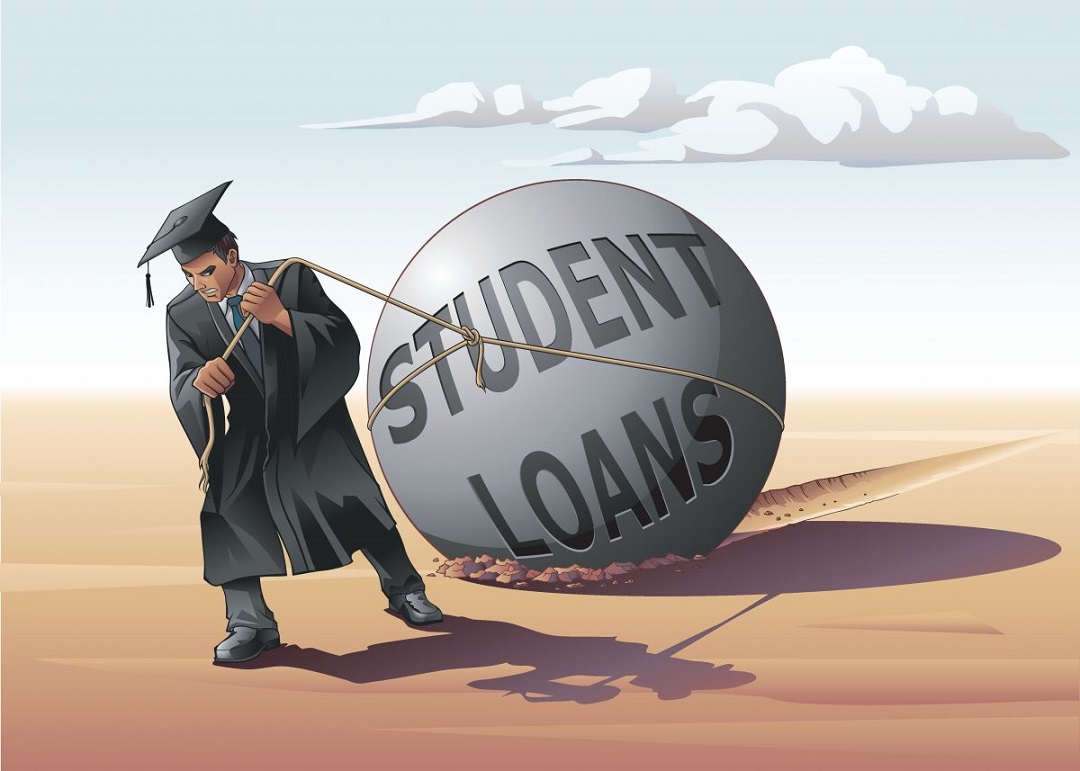Hey there! So, you’re thinking about going to college or university, but you’re not quite sure how to foot the bill, right? Don’t worry; you’re not alone. Many students rely on student loans to help cover the cost of higher education. But what exactly is a student loan, and how does it work? Let’s break it down in simple terms.
What Exactly Is a Student Loan?
A student loan is a type of financial aid designed to help students pay for tuition, fees, and other educational expenses. It’s basically a loan you take out to fund your education, with the understanding that you’ll repay the borrowed amount plus interest over time. Think of it as an investment in your future – you’re borrowing money now to hopefully increase your earning potential later.
How Do Student Loans Work?
So, here’s the deal: when you take out a student loan, you’re agreeing to borrow a certain amount of money from a lender, usually a government agency or private financial institution. This borrowed amount, known as the principal, accrues interest over time, meaning you’ll end up paying back more than you initially borrowed.
Types of Student Loans
There are two main types of student loans: federal loans and private loans.
- Federal Loans: These loans are funded by the federal government and typically offer lower interest rates and more flexible repayment options compared to private loans.
- Private Loans: Private loans are offered by banks, credit unions, and other financial institutions. They may have higher interest rates and fewer borrower protections compared to federal loans.
Applying for Student Loans
Now, let’s talk about how to get your hands on some of that sweet, sweet loan money.
- Fill out the FAFSA: The Free Application for Federal Student Aid (FAFSA) is the first step in applying for federal financial aid, including loans. You’ll need to provide information about your family’s income and assets to determine your eligibility for aid.
- Explore Federal Aid Options: Once you’ve completed the FAFSA, you’ll receive a financial aid award letter outlining the types and amounts of aid you’re eligible to receive. This may include federal loans, grants, and work-study opportunities.
- Consider Private Loans: If you still need additional funding beyond what’s offered in your financial aid package, you may need to explore private loan options. Shop around and compare interest rates and terms from different lenders to find the best deal.
- Complete the Loan Process: Whether you’re borrowing federal or private loans, you’ll need to complete the necessary paperwork and meet any additional requirements set by the lender. This may include signing a promissory note and completing entrance counseling.
FAQs (Frequently Asked Questions)
Do I have to start repaying my student loans while I’m still in school?
No, most federal loans offer a grace period, which is a period of time after you graduate, leave school, or drop below half-time enrollment before you must begin repaying your loans. Private loan repayment terms vary by lender.
Can I use student loans to cover living expenses like rent and groceries?
Yes, student loans can be used to cover a variety of educational expenses, including tuition, fees, books, supplies, and living expenses such as rent and groceries.
What happens if I can’t afford to make my student loan payments?
If you’re having trouble making your student loan payments, don’t panic. There are several options available to borrowers, including income-driven repayment plans, deferment, and forbearance. Contact your loan servicer to explore your options.
Can I pay off my student loans early?
Yes, you can pay off your student loans early without penalty. Making extra payments or paying more than the minimum due each month can help you save money on interest and pay off your loans faster.
What happens if I default on my student loans?
Defaulting on your student loans can have serious consequences, including damage to your credit score, wage garnishment, and legal action. If you’re struggling to make your payments, contact your loan servicer immediately to discuss your options.
In Conclusion
Student loans can be a valuable tool for financing your education, but it’s essential to borrow responsibly and understand the terms of your loans. By exploring your options, applying for financial aid, and managing your loans wisely, you can achieve your academic goals without breaking the bank.








